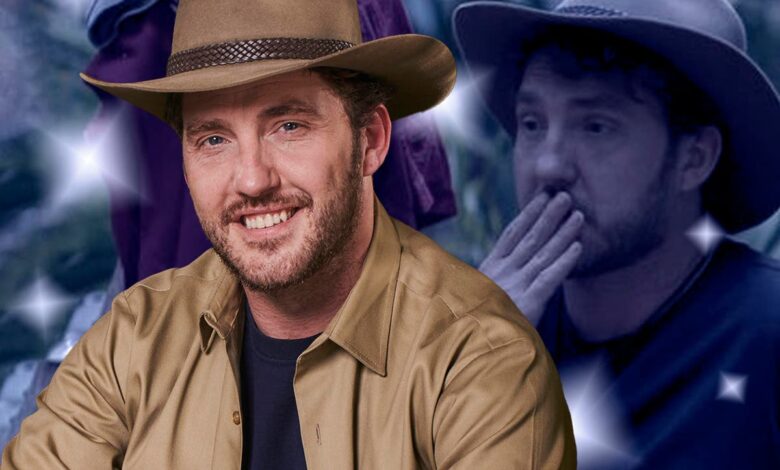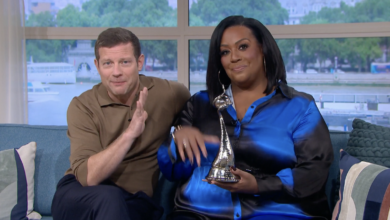The fixation on Seann Walsh’s Strictly scandal points to a hypocritical fear of infidelity

It was one of the most uncomfortable moments in recent television history. Comedian Seann Walsh and professional dancer Katya Jones are sitting opposite Zoe Ball, the host of Strictly Come Dancing’s sister show It Takes Two. Jones seems on the verge of tears; Walsh seems irritable, defensive. Neither of them wants to be there. “I’m sorry for the hurt that I caused,” says Walsh, grimacing. “I regret it deeply.” Then, later in the same interview: “I’m not the person I’m being portrayed as.”
This is 10 October 2018, four days after photos of Walsh and Jones kissing on a night out were splashed across The Sun’s front page. Walsh – who’d performed at the Edinburgh Fringe and made frequent appearances on panel shows such as Mock the Week – was one of the celebrity contestants on the hit TV dance contest. Jones was his professional dance partner. At the time, he was in a long-term relationship with actor Rebecca Humphries, while Jones was married to fellow dancer and Strictly professional Neil Jones. The fallout was immense, not least because Humphries swiftly issued a statement accusing Walsh of “controlling” behaviour and claiming that he had “aggressively and repeatedly” called her a “psycho/nuts/mental” when she confronted him. He and Jones stayed on Strictly, but were soon voted out of the show. At the Edinburgh Fringe the following summer, he was booked to play a 200-capacity venue. Walsh, used to selling out on the first night of the festival, walked out to 30 people in the audience.
Four years later, the scandal follows Walsh’s every move. For the past few weeks, he’s been competing on I’m a Celebrity… Get Me Out of Here! alongside a motley crew including Coronation Street star Sue Cleaver, Boy George and Matt Hancock. Earlier this year, Humphries released a book, Why Did You Stay?, a memoir that details (and there is quite a lot of detail) her relationship with Walsh and the fallout from the Strictly scandal. Her ongoing work advocating for better awareness of toxic behaviour in relationships – she spoke at the House of Commons about coercive control in 2019 – should be applauded. It’s the behaviour of the media, and the public, that bothers me.
His time on I’m a Celeb has been touted mockingly as Walsh’s “redemption tour”, but he’s seemed reluctant to really delve into the past under his own steam. Asked by Sue Cleaver, however, he winced and gave her a brief run-through of events, to which she asked: “Why did that crucify you? Why did that have such an impact?” Walsh then recalled the statement Humphries released: “That was the end of me.”
Celebrity infidelity has been a hot topic in recent years. There was Adam Levine, accused this year of sending flirtatious (cringey) messages to other women while married to model Behati Prinsloo (he said he’d “crossed the line” but denied cheating). Former health secretary Matt Hancock, Walsh’s I’m a Celeb campmate, broke his own Covid guidelines in 2021 when he was caught in a clinch with his aide, Gina Coladangelo, in his ministerial office. Dominic West was pictured appearing to kiss his The Pursuit of Love co-star Lily James in 2020, while inexplicably riding a microscooter. Neither he nor James commented on the photos, but West and his wife later held up a written statement outside their home: “Our marriage is strong and we’re very much still together.”
Nuanced depictions of infidelity in TV and film are becoming more and more frequent. There was The Affair (ironically starring West), which made smart use of memory bias to demonstrate the drastically differing perspectives in a relationship. There was Marriage Story, and Doctor Foster, and Conversations with Friends. However, real life – and social media – remains stuck in this odd culture of moralising and finger-pointing.
Social media thrives on absolutes. Likes, dislikes; good, bad; upvote, downvote. It’s far easier to declare your belief that someone is an “arsehole” than attempt a more nuanced conversation about why someone might behave the way they do. In a piece published in The Independent last month, Oliver Keens suggested the UK might have lost the “confidence” to discuss affairs: “I think we’re in a strange new state of moral confusion: unsure if it’s our business to know about infidelity,” he wrote. “Angered and fascinated, but not entirely sure why.”
Confusion seems to be the order of the day when discussing the Strictly scandal. Humphries has said she felt “gaslit” during her relationship, while Walsh said in 2019 that the way he treated her by cheating was “a form of abuse” – both only seemed to realise the issues with their relationship after it ended. What Humphries described – being called “psycho” and “mental” for challenging his behaviour – will probably sound familiar to anyone who’s confronted a cheating partner. Isn’t that what so many people do when they don’t want to get caught? They turn the tables and accuse the other person of having it out for them: “You’re crazy, insane, how dare you.” Is everyone who does this a gaslighter? It feels as though there’s a risk the term will soon lose its meaning, which in turn will make it harder to know how to respond to individual behaviour.
In Humphries’ case, she’s said that she wishes to move on with her life. But the public vituperation aimed at Walsh continues, and it’s very difficult to think of many other scenarios where someone gets punished professionally for a personal indiscretion. If a doctor had an affair, does that make her unqualified to carry out heart surgery? And outside of work, does failing to abide by society’s rules about sexually exclusive relationships make you an awful human being? There’ve been enough studies suggesting that monogamy is not, in fact, natural, meaning the level of outrage that erupts whenever there’s an infidelity scandal is somewhat disproportionate.
Writing for The Independent in response to the Levine allegations, Caspar Salmon suggested it was time we “grew up” and stopped “panicking” about infidelity. “People aren’t logical. If you judge others, thinking that you yourself can or should tame your desires forever, you may be in for some surprises,” he warned.
That’s not to say people should be able to claim they had zero autonomy when it came to said infidelity. Much was made of the so-called “Strictly Curse”, which is said to cause contestants’ relationships to combust, when the photos of Walsh and Jones emerged. “As though it was something out of his control, divine intervention. It isn’t,” Humphries recalls telling her friends in Why Did You Stay? “Curse puts the onus on an abstract concept when it isn’t abstract at all. The onus is on them. Their choice. They should call it that: the Strictly Choice.”
Walsh has certainly been living with the repercussions of his choice. But how long should that go on for? Why are people so fixated on the idea that he should be reminded of what he did… do they really think he’s going to forget any time soon? People make mistakes. And, for the most part, they learn from them. But we have to allow them to change; we have to let them move on.





